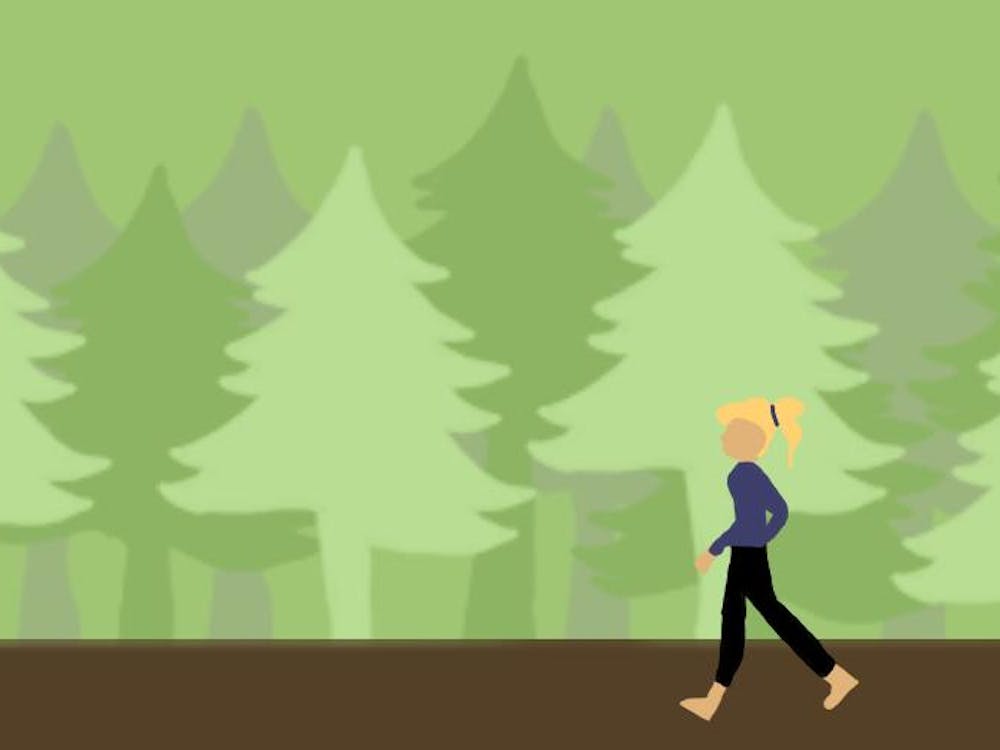Grace Akallo's current life is not out of the norm. She went to college. She got married. She had her first child. But that's just one story of her life. As Grace Akallo explained in her talk at the University Feb. 18, she used to be a child soldier.
In 1996, Akallo was kidnapped from her all-girls Catholic high school in northern Uganda and was forced to fight for the Lord's Resistance Army.
"I remember being 15 years old, a freshman in high school and feeling so positive about my future," she recalled. "Then one night they came, and my future all of a sudden didn't seem like something that would ever happen."
Akallo said that night, 139 girls, including herself, were forced out of their dormitory in the middle of the night with threats of violence.
"We were then tied up and pushed into the cold rain," Akallo said.
Of the 139 girls, the majority were rescued by the school's headmistress, Rachelle Fassera, who was able to follow the rebels and plea for the lives of 109 of the girls, according to Akallo. She and 29 other girls continued to be held captive.
Akallo said she and the others were forced to march hundreds of miles without adequate food, sleep or even the security of knowing they would be alive the next day.
"We followed the rebels into southern Sudan because it was literally keep up or be shot," she said. "There was no other choice."
To survive, she, along with the other child soldiers, fought for the LRA.
"First you are beaten," she said, "as a form of initiation."
After the initiation, the child soldiers were forced to kill somebody, she said.
"Then, the more you kill and the more children you are able to abduct, the better off you become with the rebels," she noted.
Akallo explained that many of the older girls were also forced to become the "wives" of men twice their age. In her case, she said, she became the wife of a man three times her age.
"I remember one of the girls actually giving birth while marching," Akallo said, remembering there were no tears, just the sound of girls screaming.
Akallo added that the rebels didn't stop at threatening death. As a form of brainwashing, the rebels performed a ritual in which the children were told to stand in a circle, smeared with shea butter, and had hearts drawn on their bodies with ash -- a form of protection, the rebels called it.
Following this ritual, the children were told "'if you do something, you dead; if you even think of escape, you dead; we know your thoughts,'" Akallo said. "And we believed every lie."
She said for seven months, fear of these lies filled her head as she witnessed ears, arms and other body parts being cut off other children who were being used as examples.
"Escape seemed out of the question," she said. On her last day of captivity, while being forced to invade yet another village, Akallo fainted of thirst and was left in a shallow grave, this time literally buried alive.
Akallo said for three days after waking up from her grave, she walked, surviving off of the dew that came in the mornings. While hiding in a bush and still believing her captors' lies, she said she remembers thinking "the jungle was going to rise and give her away to the rebels."
When the jungle didn't rise, she said she knew what she was told was not true.
"I then heard a voice," Akallo said. "It was God telling me to keep going."
She said on the fourth day she found another group of children who had escaped.
"Some of them wanted to go back but I told them no," she said. "I told them I would not go back. I survived the bullets and God has finally saved me. I will not go back."
Akallo said the children left and she continued on her way. She said she was later found by some villagers who turned her over to the Ugandan soldiers. She was free.
While Akallo was able to escape, others were not as lucky.
"Five of my classmates were killed," she said. "Two are still there. They have not seen their families. They have not seen their homes. How much longer will the world stay silent?"
After returning home, Grace graduated from her high school in Uganda and came to America to share her story.
"During those seven months, the world was silent," she said. "Now I am free and I won't be."
Akallo said she tells her story in hopes of creating change. One person working to make a difference is Akallo's friend Justin Holcomb, who teaches sociology and studies in women and gender courses. He said he and his wife, Lindsey, visit Nimule, Uganda every summer and bring items such as mosquito nets for the people of the town.
"Lindsey and I think its really important to just do whatever we can," he said.
But more could still be done to help children still in capitivity, Akallo said.
"The silent cries are not being heard," she said. "Make some noise"






